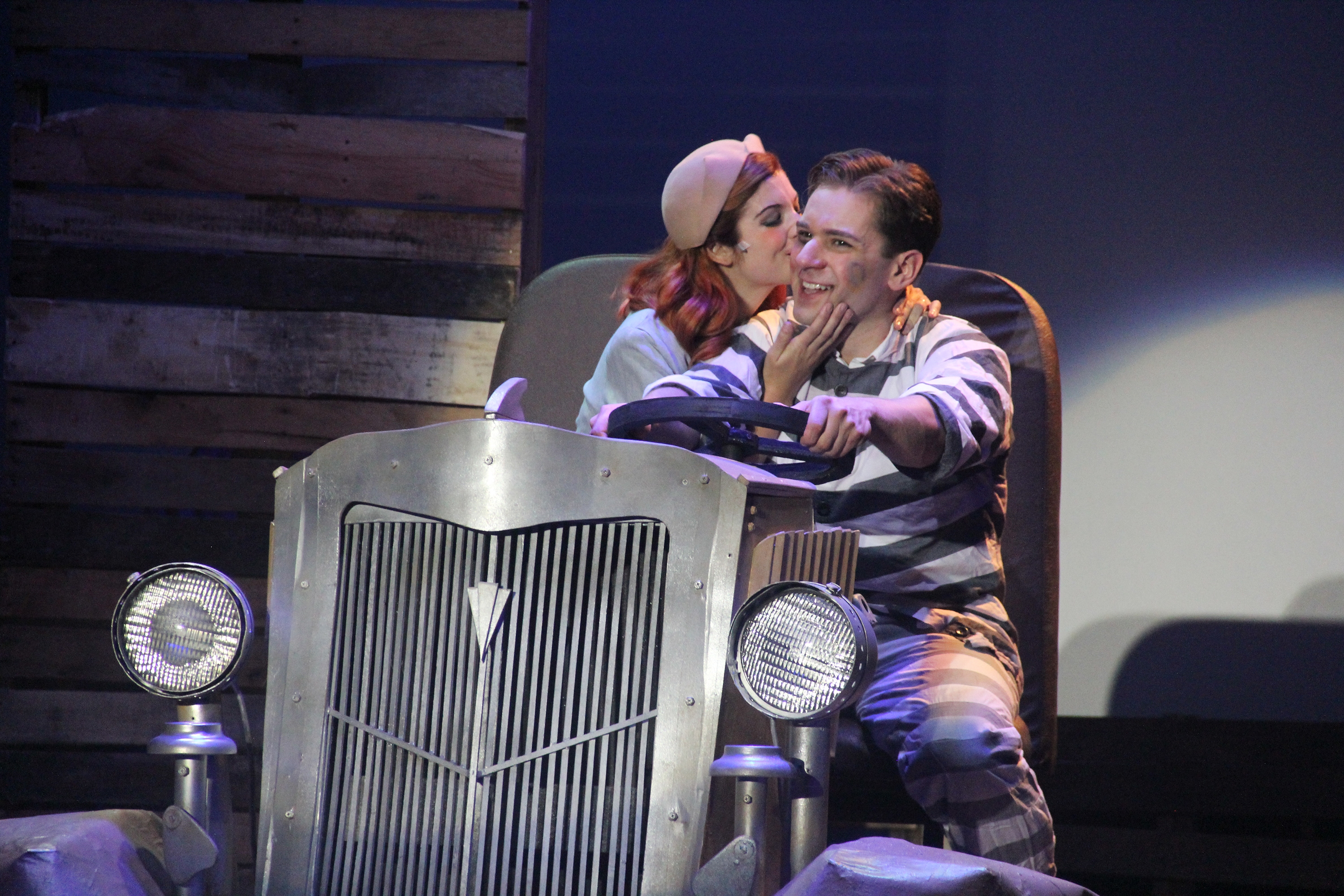Great Depression era American criminals Bonnie Parker and Clyde Barrow captured newspaper readers’ imaginations of their day, becoming public figures for doing no good and creating celebrity culture before its time. And our obsession with these real-life characters who lived and loved with wanton desire and freedom only to die young in a blaze of glory never really waned. Their story has been adapted for film, television, cartoons, hip-hop songs, and podcasts, among practically infinite variations on their daring, romantic, violent tale.
We know this uniquely American story of two young lovers who yearn for fame and fortune and will stop at nothing to escape their white-trash Texas roots, and we never tire of it. They’re despicable, really, and deliciously so, for they speak to the shadow side of American culture (that’s no longer hidden, really, with a commander in chief who got there by way of reality TV and making shady billions. But I digress.).
And yet they’re also incredibly attractive, particularly in The Barn Theatre’s production of Frank Wildhorn’s 2011 musical Bonnie & Clyde, with book by Ivan Menchelle and lyrics by Don Black. Thanks to stunning performances and evocative design, this darkly beautiful American fairy tale of desire without regard for consequence is also tender, funny, and shot through with real heart and soul.
It all comes from the heart at The Barn, and Director Brendan Ragotzy has especially created conditions in which Bonnie & Clyde really sings with style. This particular rendition of this tale is intelligently built with parallel structure and juxtaposition — the moral high ground of Southern Protestantism with wildness and raising hell — and from that tension emerges both light and dark, heightened by an extraordinary cast who draw out maximum complexity from the characters and story through this book and music to offer a wonderfully moving production.
Melissa Cotton Hunter is a dazzling Bonnie Parker, a defiant poet full of longing and spunk, who sings so sweetly, you believe she’s not only not all bad, but full of the kind of spiritedness that goes far deeper than the exuberance of youth. With Johnnie Carpathios as an irresistible Clyde Barrow, we root for these wild little hellions. They are the shining representation of American freedom, for better and for worse, and sexy as all get out.
They fly in the face of the righteousness of the Lord, embodied by Patrick Hunter as a powerful Preacher who leads big beautiful gospel numbers that hit you in the center of the chest; and Samantha Rickard as Blanche Barrow, Clyde’s born-again sister-in-law, the realest real talker of the bunch, an emotional center of the entire show who creates gorgeous harmonies, especially with Melissa Cotton Hunter in the lovely country ballad “You Love Who You Love” and offers one of the finest solos in the show with “That’s What You Call a Dream.”
Bonnie and Clyde also defy the Law, furiously portrayed by Charlie King as a formidable Sheriff, and Miguel Ragel Wilson, who positively shines as unrequited lover Ted Hinton, and is particularly wonderful in “You Can Do Better Than Him” with Johnnie Carpathios.
These singers are universally tremendous, making the music their own, and better for it. The songs, though, are indeed lovely pop variations of country, gospel, power ballads, folk-rock, and bluegrass, and Matt Shabala leads a terrific orchestra that offers especially poignant string solos — from Cam Taylor on guitar and Negar Afazel on violin.
And everything about this show sensually evokes both the beauty and hardship of the period and place while also functioning on a symbolic level. Visually, the show is muted so that certain elements really pop. Their West Dallas is largely monochromatic in the most interesting ways, with Samantha Snow’s brilliant set that creates distinct scenes on raised platforms of distressed wood with upstanding pallets of reclaimed barn wood that act as curtains, opening and closing on scenes, and allowing for quick pacing through seamless transitions and set changes. Lauren Alexandria’s costumes, too, are largely muted until the stakes change for the characters and their frocks, too, become emboldened.
Mike McShane’s lights create the heat and wild beauty of the Texas sky, a metaphor for Bonnie and Clyde’s relationship, as well as bring to life Michael Wilson Morgan’s gorgeous coupe cars (also a metaphor for freedom) and tasteful yet wonderfully effective scenes of gun violence.
We love the iconic American outlaws Bonnie and Clyde for their own sake, but these characters are just the beginning of all there is to love in this smart, stylish, evocative musical at The Barn where all the elements work together elegantly to create something truly heartfelt, and far more than the sum of its parts. And without our even having to think too hard about it, a kind of cultural critique emerges as well, reflecting the truest kind of patriotism democracy can offer this July.
Bonnie and Clyde
Barn Theatre School
July 3-15
barntheatreschool.org





